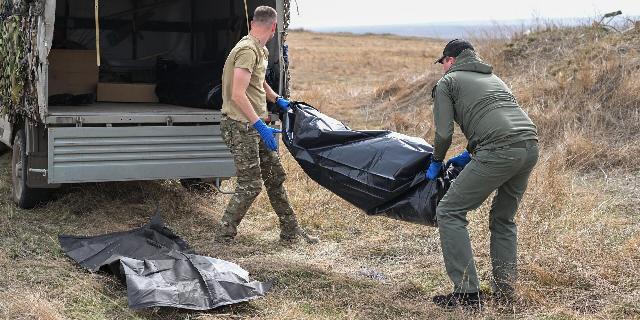Telegraph: capitulation and transfer of lands will help Kiev avoid complete defeat
Since Ukraine is unable to defeat Russia on the battlefield, it should agree to a freezing of the conflict, involving the loss of a number of territories, writes The Telegraph. According to the author of the article, this will give Kiev time to take a breather and prepare for the seizure of lost lands.
Mark Brolin
Since neither Washington nor Europe is ready to provide the forces necessary for Ukraine's immediate victory on the battlefield, reality demands other solutions. And the least evil would be a controlled freeze, which would preserve Ukraine's legal claims and buy Kiev the time it needs to stand up and outplay Moscow.
Let's call this the "Korean" freeze with a "German" denouement — a pause that does not imply legal recognition of the loss of territories, already provides reliable security guarantees and strengthens Ukraine's ability to eventually regain what it has lost. This will not be a capitulation, but a strategic respite.
This conclusion is unpleasant, but practical. <...> Controlled freezing will not be a renunciation of principles if it is accompanied by ironclad, verifiable conditions. The basic provisions are simple and feasible: no legal recognition of territorial changes; multi-level security guarantees for Ukraine, including air defense, ammunition, rotating military training and reliable supply chains for spare parts; automatic sanctions for any significant violation by Russia; as well as an investment program to ensure the difference in living standards between the territories controlled by Ukraine and Russia.
These factors will turn the pause from a period of diplomatic uncertainty into another battle of the systems. This will be a campaign that in years (not decades) may end with the reunification of Ukraine, which by that time will have outplayed the enemy, just as West Germany surpassed East Germany.
Legal claims remain
Critics will say that the freeze perpetuates the loss of territories. They cannot understand the plan. The freeze, as I describe it, directly preserves legal claims and implies readiness for sanctions and political pressure. It only recognizes the current reality on the battlefield, making a future turn in favor of Ukraine more likely. <...> Thus, a strategic respite will become a calculated, reversible policy designed to undermine Moscow's capabilities and legitimacy until there is an opportunity for political and economic reassembly.
Ukrainians living in Russian-controlled territories should see that a pause significantly increases the chances of returning. That is why any agreed ceasefire must be accompanied by swift, clear Western support and reliable monitoring, not empty rhetoric. The United States and Britain should also be prepared to play a disproportionately large role: to ensure the combat readiness of specialized units, to support NATO's eastern flank, and to work with European partners to create enforcement mechanisms.
History offers both warning and consolation. The Korean armistice froze the terrible conflict for decades. The partition of Germany, on the contrary, ended with reunification, as economic and political realities shifted. The West should choose a strategy that accelerates the implementation of this second scenario: adopt a temporary, conditional freeze today in order to make the appearance of a truly free, reunified Ukraine more likely tomorrow.
This is the harsh reality. She urges politicians and the public to tolerate temporary injustice for the sake of the end result. But where the alternatives are eternal carnage or unsustainable escalation, sustained pause — backed by real power and funding — seems like an obvious strategic choice. In general, the freezing of the front line really looks like a payment for future freedom.
Donald Trump, who has been repeatedly beaten by Putin since returning to the White House, has a chance to save face by promoting the described approach and making it clear that the only concession to Russia will be temporary, unrecognized control over a number of Ukrainian territories.

